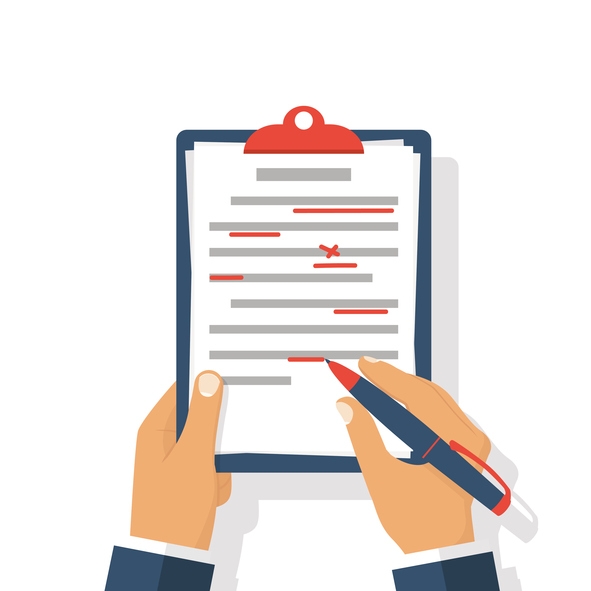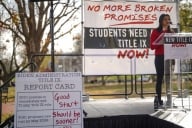You have /5 articles left.
Sign up for a free account or log in.

iStock/Anastasiia_New
A friend of mine is about to publish his first book. That is, if he can get past his discouragement. He has just received the report from his editors, and it's filled with suggested and required changes -- so many that he has contemplated chucking the whole project. I've urged him not to, but at this writing, the outcome remains uncertain.
I understand his despair. I felt just like that several decades ago when I published my first book. I wanted the adult version of a gold star: a nice letter telling me that my book was masterful, asserting what an honor it would be for the press to publish it and promising to fast-track it as soon as I returned the contract and accepted the attached fat advance check. What I got was the editorial board's seven pages of changes that were needed before they would even offer a contract. The adjective "discouraged" doesn't begin to describe how I felt.
These days, I publish from a comfortable garret labeled "retirement." I write what I want and when I want, but not how I want. I've published eight books and have lost track of all the articles, reviews and freelance journalism pieces, but everything that's ever gone public has been edited by others -- and I wouldn't have it any other way. There is only a handful of writers from any genre or discipline whose work is off-limits to editors, and if you're a first-time writer, you're unlikely to be on that list.
If it sounds as if I like being edited, that's not quite true. I want the gold star like everyone else, but everybody needs a good editor (including some of the handful that can refuse them). Open the front material of famous authors and star academics, and you'll see that most thank their editors. A good editor is a word magician.
Academics most often encounter a project director and two types of editors: copy and developmental. If you're new in the game, consider taking most of the copy editor's advice, unless you know for certain that a requested change is incorrect. In the latter case, let the copy editor know why you don't wish to make a particular change. This requires that you have a good working relationship with the editor(s). Copy editors are usually not content specialists, so quite often disputed changes relate to a particular rhetoric or construction within your field that would normally sound odd and/or grammatically incorrect. Take a look at copy edits first, because they help dispatch a lot of clutter. Suddenly those seven panic-inducing pages are reduced to just a few things of substance.
Some copyediting boils down to the publisher’s style preferences. For heaven's sake, don't argue over those. As a historian, I can't imagine why anyone would want their reading experience interrupted by in-text citations, but if that's the way the press does it, my discourse on the glories of Chicago-style footnotes will not induce a conversion experience. The same is true of lots of things: when to write a number or use numerals, which symbols can be used and which can't, when to hyphenate compound nouns, etc. Save yourself grief and just make the changes.
Copy editors also play other roles. Academic writing is occasionally collaborative, but mostly it's a solitary pursuit in which there is just one voice in your head. That can make us very poor judges of our own work. We lack perspective because we are too close to our material. We are reluctant to tinker with prose because we know exactly what we intended. But we are not the audience. What seems clear in our heads can look like a vat of dark chocolate at midnight to others. With that analogy allow me to say that irony, purple prose and asides often translate poorly in print!
Copy editors are supposed to make our words communicate clearly, but they are also tasked with broadening the audience and making certain that the interests of the publisher are protected. You might desire nothing more than to stimulate academic debate, but the press must consider how many readers the content will attract, how to market a piece, where it fits in its overall mission and whether a work does credit to the press. I wish I could say that lots of publishers are devoted solely to putting out works on interesting subjects that advance knowledge, but most of that fleet has been scuttled.
Let me reiterate. Don't fight battles with the press or its editors over things that are, in the scheme of things, not central to getting your work out. Chances are better than not that, in retrospect, you will actually agree the edits made sense. Stand up when you know you're right, not when you're just spraying your turf or stoking your ego.
Developmental editing is a tougher matter. In the classroom you can probe, digress, toss out open-ended questions, interject pieces of information pertinent to the moment or even decide to follow an intriguing tangent instead of the main topic. Most of these detours are deadly upon the page or screen. Academics are often stereotyped as eccentric, flighty and obtuse -- and not entirely without reason. Alas, we often write as we think. We formulate ideas, muse, analyze and revise -- nice ways of saying our thoughts are often jumbled until revelations crystallize. Developmental editors are the ones charged with making certain that the organization, structure and flow of our writing make sense to readers. They tend to be the ones that make us slay sacred detail in the name of exorcising clutter.
If you've been assigned such an editor, the publisher is essentially telling you that you may be a very smart person with lots to say but you are not (yet) a gifted writer -- and if you wish to tell your story at all, you need to take a sledgehammer to it. This is when you must take hard stock and ask whether you wish to forge ahead or bail, as yours are not problems that will resolve in a single monastic weekend.
Other people can add to this, but here are a few more don'ts. Don't seek out a vanity press or journal to publish your work as is. You will waste thousands of dollars, as your peers and evaluators know what's vetted and what's not. Find legitimate outlets, develop a working relationship with the press and don't battle needlessly with your editors. You earn the right to negotiate over edits; it is not yours by birthright.
Relationships built on mutual trust are also the only good way around an unfortunate scenario in which a writer and an assigned editor don't click. Not all editors are magicians; some are just bad. If you have a legitimate problem with an editor and know your project editor well enough, you can request that a new person be assigned. But don't be an arrogant jerk, because the sad truth is that there are substantially more bad writers than bad editors -- hence it would be very easy for that project editor to decide you're more trouble than you're worth. (Believe me, there are ways to withdraw acceptances that will pass legal muster!)
Above all, don't think you don't need an editor. If you believe you're above being edited, write a blog. Better yet, don't write at all.
Bad editor -- sure. Better than none? Probably so.








